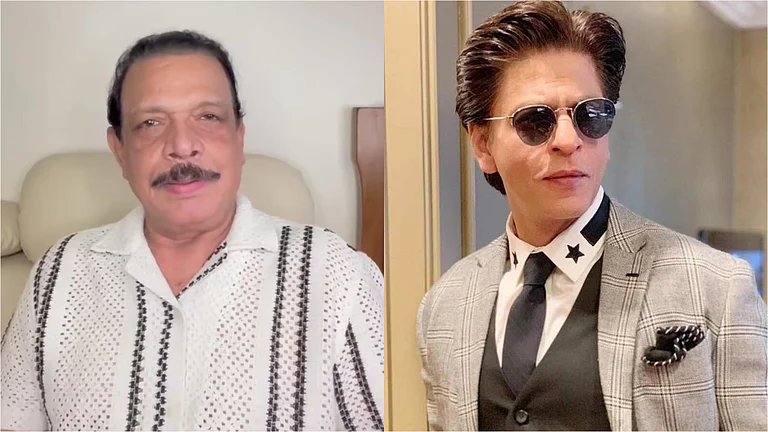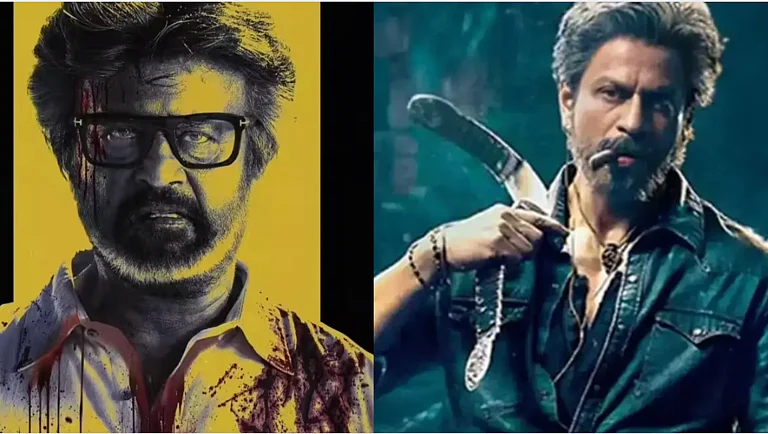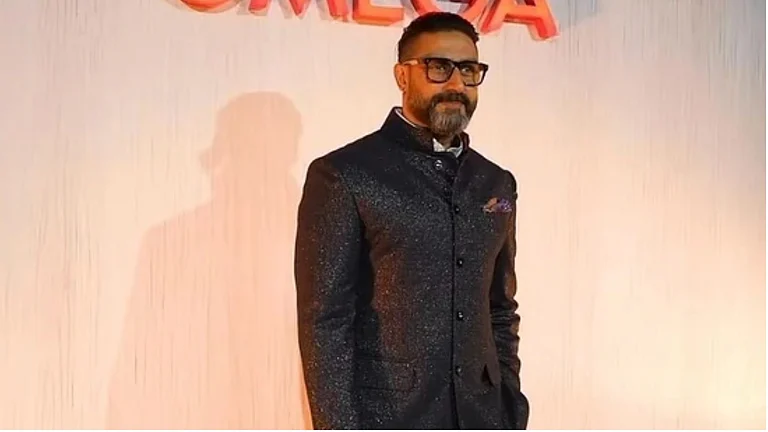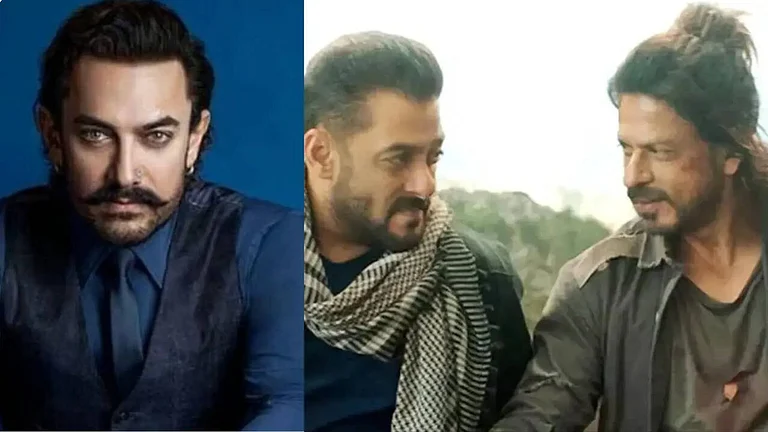Shah Rukh Khan and Vikrant Massey deserve applause; their films do not. Jawan is crowdcraft—loud, clever, incurious—a comic‑book crusade masquerading as reform. 12th Fail, tender as it is, belongs to an older aspiration economy, where exams are destiny and luck is policy. Awards are not ornaments; they are signals. In blessing these two stories together, the jury didn’t just reward performance—it endorsed a syllabus: vengeance and rote. A country of value creators and problem‑solvers merits a different set of notes.
The first time I saw Shah Rukh Khan, he was not yet the institution he would become—only the promise of one. It was 1994, a wintry afternoon in the Badshahpur police‑station area under my watch as ASP, Gurgaon. Yash Chopra’s unit had commandeered a strip of mustard fields for a song that would go on to wallpaper a generation’s memory. Kajol stood to one side, hair gathered against the breeze; Shah Rukh—boyish, quick on his feet—slipped in and out of the frame as reflectors flashed and someone called for silence. He wasn’t Mills‑and‑Boon tall, nor Kapoor‑handsome. Ditto for Kajol: luminous on camera, unvarnished at arm’s length. None of that mattered. They—and the crew around them—knew how to make feeling reproducible. The film did famously well. They did even better, helped by an industry that learns to choose from what it already offers, and a global market that accepts the buffet it is given.
The second time I saw him was at Delhi airport: the longest car I had ever seen uncurling to the curb, then a tide of staffers and guards moving like a choreographed breakwater. In the center, the star—nodding, smiling, advancing through a corridor of phones. If the first encounter felt like proximity, the second was theatre. Between those two tableaux lies a national story about how we dream, how we consume, and how we reward.
Shah Rukh’s professional arc is now civic catechism. He began on television with Fauji, made an arresting film debut as an anti‑hero, pivoted into romance—naam to suna hoga—and arrived late to the action epoch, eight‑pack bravado and all. Reinvention kept him current. But when a jury crowned his turn in Jawan with Best Actor, I found myself asking, gently: Mr. Jury, what exactly did you see?
Shah Rukh Khan and Vikrant Massey are, by any measure, fine actors. The trouble is the vehicles we have just consecrated. Jawan is a blunt instrument—ingenious in bursts, but finally a comic‑book fantasy that mistakes detonations for diagnosis. 12th Fail, moving in parts, is anachronistic as a national parable: a hymn to exam survival at a moment when India needs ladders in research, design, enterprise, and care. Juries do more than distribute medals; they curate a mood board for the young. This year’s selections whisper the wrong lesson: that change arrives via a lone avenger or the lottery of recall. We can celebrate the men without canonizing these messages. The better signal is quieter—competence, collaboration, and the long, unfashionable work by which countries actually rise.
To be fair to the rulebook: this year’s National Film Awards recognize films certified in 2023. On that score, Jawan and 12th Fail qualify squarely, and their performances—crowd‑commanding in one case, delicately inhabited in the other—are not in doubt. The question is not eligibility but example. Awards whisper to the youngest and most impressionable viewers what a nation thinks is worth emulating: what to imitate, what to invest in, how to expect change to arrive.
Jawan offers catharsis through choreography. It gestures at unemployment, farmers’ distress, cronyism; then resolves them with the swoop of a vigilante’s cape. The stunt grammar is comic‑book; the politics a collage. You leave with your ears ringing and your conscience conveniently soothed: the bad thing has been punished by a bigger, better badness; the “system”—whatever that is—has been taught a lesson. But our system is not a faceless villain; it is a mosaic of work. It is popularly elected leaders reachable at indecorous hours; selected civil servants holding contradictions together with scarce resources and stubborn patience. It is constables entering dark rooms without the promise of a soundtrack, nurses working the night shift, firefighters running toward heat. It is an untidy bureaucracy that has helped pull millions out of poverty, midwifed a middle class the size of a continent, and made room—sometimes grudgingly but unmistakably—for founders from IIT and beyond to build multibillion‑dollar enterprises. That story is incremental and human. It does not bend easily to detonations.
12th Fail is more humane and closer to the ground: a young man stumbling, persisting, and, at last, entering public service. As a portrait of perseverance, it is persuasive. As a national parable, it feels backward‑looking. At a moment when Western doors narrow for our graduates, India’s principal task is to widen windows at home—in research labs and design studios, in public health, enterprise, and applied science. The civil‑services exam is a contest of comprehension and recall with a luck quotient no one likes to admit. It produces many fine officers; it is not a development plan. We can cheer the performance without canonizing the message.
There are, from recent years and from the coming cycle, quieter films that would send richer signals to the audience that consumes cinema most—the young who study on borrowed time and travel by shared ride. Soni finds heroism in two Delhi policewomen navigating misogyny and the mundanity of night duty; it dignifies competence. Sherni follows a forest officer holding a fragile line between livelihood and habitat—an ethic of stewardship for a century that will live or die on such lines. Thappad takes a single slap and unfolds it into a syllabus on respect, due process, and the grammar of consent—change done without theatrics. Sir treats class not as ornament but architecture, mapping the quiet courage of redrawing status with dignity. Article 15 asks viewers to approach equality not as slogan but as lived duty, and to see law as discipline rather than prop. Kaun Pravin Tambe? makes a fable out of late blooming, telling young Indians that perseverance can be a vocation. Among newer titles, Laapataa Ladies peers into rural India with humor and tenderness, arguing for agency without caricature; Srikanth turns disability into a lens on enterprise, not a plea for pity. In different registers, Kadvi Hawa and Court remind us that climate and justice are not abstractions but daily negotiations—slow, procedural—and that slowness is often the point. Not all of these were eligible this year; that is beside the point. The point is the palette of virtues we choose to elevate.
Culture sets the emotional weather. Songs, films, serials seep into the national mood; they can crystallize private irritations into public purpose. We have watched, here and nearby, how a lyric becomes a placard and a scene becomes a posture—how narrative heat, once stoked, can rush from phones to streets. That energy is real. So is the morning after, which belongs not to slogans but to institutions. Stories of lone saviors have their place; they can also tutor impatience. They make rupture feel like a plan.
None of this is a brief against spectacle. A confident republic can afford fireworks; it just shouldn’t mistake glare for daylight. Nor is it a sermon against stardom. Shah Rukh Khan remains a supreme connector—he softens rooms and hard cities, and, in an uncivil hour, that is no small civic virtue. Vikrant Massey, in a different key, reminds us how much stillness can do. But the National Award is where we set the metronome. If the signal says “more detonations, louder righteousness,” we will get them. If it says “show us institutions working, competence unglamorous and real, repairs undertaken without applause,” we might get that, too.
Applaud the performances; mind the signals. The films we just crowned teach vengeance and rote. The generation watching needs craft and courage.
(OP Singh is DGP and author of the forthcoming book ‘Why We Gather: Crowds, Smartphones And The Future Democracy’.)
Disclaimer: The views and opinions expressed in this article are those of the author(s) and do not necessarily reflect the official policy or position of the publisher. While every effort has been made to ensure the accuracy of the information, the publisher is not responsible for any errors or omissions, or for the results obtained from the use of this information.























